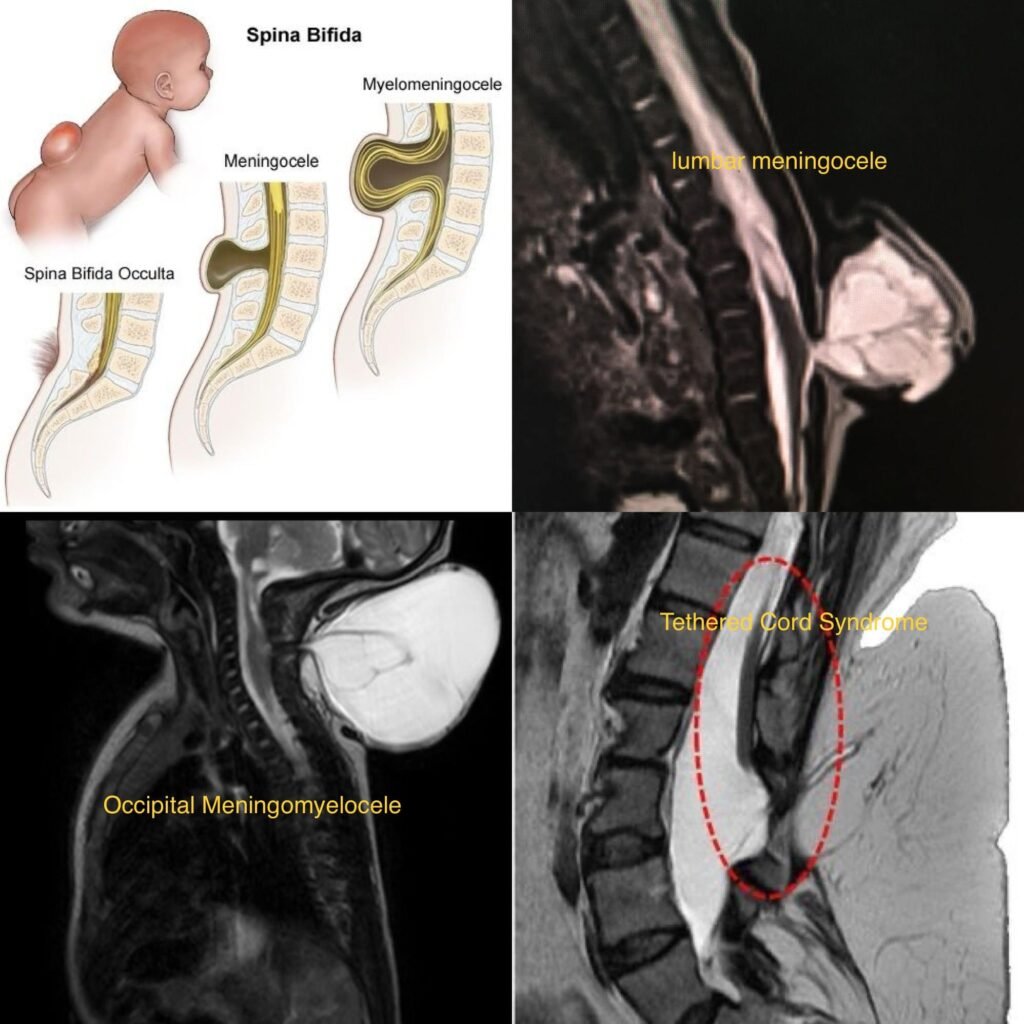Pediatric Spinal Conditions

What is it?
Pediatric Spinal Conditions refer to a range of spinal disorders or abnormalities that affect children and adolescents. These conditions can include congenital anomalies, spinal deformities (such as scoliosis or kyphosis), spinal infections, tumors, and traumatic injuries.
Symptoms:
Symptoms of Pediatric Spinal Conditions vary depending on the specific diagnosis but may include back or neck pain, changes in posture, difficulty walking or standing, neurological deficits (such as weakness or numbness in the limbs), and bowel or bladder dysfunction.
Primary Symptoms:
The primary symptoms of Pediatric Spinal Conditions may include:
- Visible curvature of the spine (scoliosis or kyphosis).
- Pain or discomfort in the back or neck, particularly with activity or prolonged sitting or standing.
- Changes in posture, such as leaning to one side or having a hunched appearance.
- Difficulty walking or performing daily activities due to weakness, numbness, or tingling in the limbs.
- Neurological deficits, such as loss of sensation or muscle weakness, which may indicate compression of the spinal cord or nerves.
Diagnosis/Treatment:
- Diagnosis typically involves a thorough medical history, physical examination, and imaging studies such as X-rays, CT scans, or MRI to evaluate the structure and function of the spine.
- Treatment options vary depending on the specific condition but may include observation, bracing, physical therapy, medication, or surgery to correct spinal deformities, remove tumors, or stabilize the spine in cases of trauma or infection.
What to Expect After Surgery:
- After surgery for Pediatric Spinal Conditions, patients can expect relief from symptoms such as pain, deformity, or neurological deficits.
- Recovery time varies depending on the type of surgery and the individual patient’s age and overall health, but most children can resume normal activities within a few months.
- Physical therapy may be recommended to help strengthen the muscles supporting the spine and improve mobility and function.
Risk & Complications:
- As with any surgery, there are risks associated with procedures to treat Pediatric Spinal Conditions, including infection, bleeding, nerve injury, spinal fluid leakage, and complications related to anesthesia.
- Additionally, there may be a risk of incomplete correction of spinal deformities, recurrence of symptoms, or complications specific to the underlying condition being treated.
However, complications are relatively rare, and the benefits of surgery often outweigh the risks, particularly when conservative treatments have failed to provide relief or when there is evidence of progressive spinal deformity or neurological deficits that require surgical intervention.
Spine Treatments
About Dr. Bharat
Dr Bharat Shinde completed his M.Ch Neurosurgery from the National Institute Of Mental Health And Neurosciences (NIMHANS), Bangalore which is an institute of National importance.
